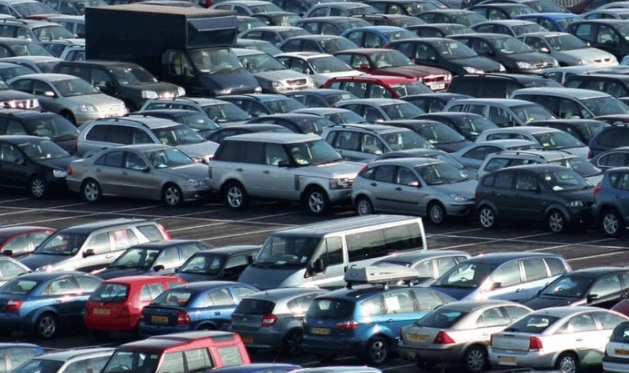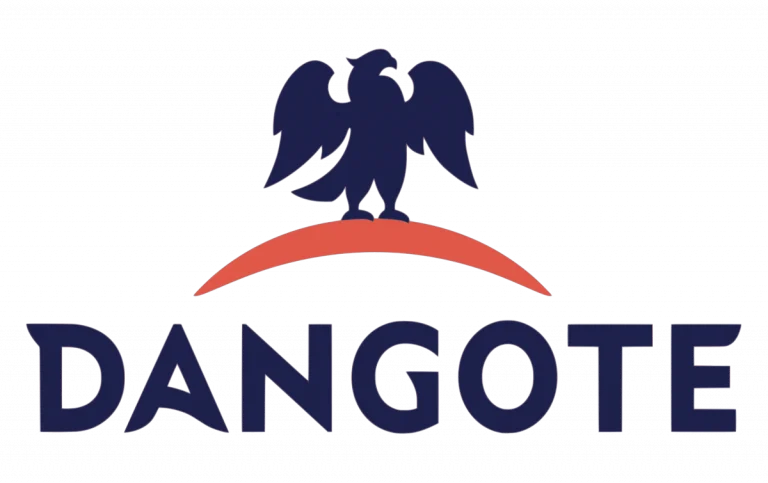Business
Imported Vehicles: Customs Slam 15% Levy, Clearing Agents Plan strike

Clearing agents operating in the nation’s maritime sector may withdraw their services following the reintroduction of a 15 per cent National Automotive Council levy on imported used vehicles by the Nigeria Customs Service.
NAC had in 2011 proposed 35 per cent duty differentials between imported fully-built units and locally assembled cars. The proposal reportedly failed later.
But years after the introduction of the levy, the Nigeria Customs Service on Saturday reintroduced 15 per cent NAC levy on used imported vehicles.
Speaking on the development, the Chairman of the National Council of Managing Directors of Licensed Customs Agents, Ports & Terminal Multipurpose Limited chapter, Abayomi Duyile, said the move could have an adverse effect on the sector.
He said, “As I speak to you now, the NCS has reintroduced the NAC levy, which is a 15 per cent payment on used imported vehicles. That is a major issue; it means an additional 15 per cent on the duty we are paying currently”
Duyile said he was surprised the service was coming up with the levy in the second quarter of this year.
READ ALSO: ‘N266.5m Fraud’: EFCC Arraigns Fake General Who Claimed Buhari Nominated Him As Army Chief
“We will meet tomorrow and when we do, we will make our views known to the government. What we have in Nigeria are assembly plants, it is not as if we produce any vehicles completely in Nigeria. I am surprised now that towards the second quarter of 2022, the Customs is coming back again with the NAC levy.
“Why should the NAC levy be on used vehicles? I don’t know why they are coming up with the NAC levy again now. The Customs didn’t inform us, so we have been advised to stop the process of duty payment until this is sorted out. This is everywhere for now and anywhere you are clearing used vehicles, you will face the same problem.”
Also speaking, the Chairman of the National Association of Government Approved Freight Forwarders, PTML Chapter, George Okafor, said the outcome of the association’s meeting with its members will determine whether the agents would embark on the proposed strike or not.
“This is wrong because there is no way Customs can calculate NAC levy on used vehicles. It should be for new vehicles. The levy is for new vehicles, and not old or used vehicles. We will have to meet with the Customs command to determine the next line of action.”
Meanwhile, the National Public Relations Officer of Customs, Timi Bomodi, said the move was in line with the Economic Community of West African States Common external tariff, 2017-2021.
Bomodi said in a statement that the service in April migrated from the old version of the ECOWAS CAT to the new version, adding that this was in line with the World Customs Organisation’s five-year review of its nomenclature.
“On Friday, April 1, 2022, the Nigeria Customs Service migrated from the old version of the ECOWAS Common External Tariff (2017- 2021) to the new version (2022- 2026). This is in line with WCO’s five years’ review of the nomenclature. The contracting parties are expected to adopt the review based on regional considerations and national economic policy.
“The nation has adopted all tariff lines with few adjustments in the extant CET. As allowed for in Annex II of the 2022-2026 CET edition, and in line with the Finance Act and the National Automotive Policy, NCS has retained a duty rate of 20 per cent for used vehicles as was transmitted by ECOWAS with a NAC levy of 15 per cent. New vehicles will also pay a duty of 20 per cent with a NAC levy of 20 per cent as directed in the Federal Ministry of Finance letter ref. no. HMF BNP/NCS/CET/4/2022 of 7th April 2022”
He added that the decision took immediate effect.
“In Chapter 98 of the current CET – bonafide assemblers importing Completely Knocked Down and Semi Knocked Down are to enjoy a concession of zero per cent and 10 per cent duty rate, respectively. While within ECOWAS, duty rates for the same items are five per cent and 10 per cent, respectively. Incentivising their efforts through policy interventions guarantees a win-win situation for the nation in the long run. Implementing the current CET takes immediate effect, please,” the statement added.
PUNCH
Business
NNPCL Announces Restoration Of Escravos-Lagos Pipeline

The Nigerian National Petroleum Company Limited (NNPCL) has announced the complete restoration of the Escravos-Lagos Pipeline System (ELPS) in Warri, Delta State, following the recent explosion on the asset.
The chief corporate communications officer (CCCO) of the nation’s oil company, Andy Odeh, in a statement, said that the pipeline is fully operational, reiterating the company’s resilience and commitment to energy security.
“NNPC Limited is pleased to announce the successful restoration of the Escravos-Lagos Pipeline System (ELPS) in Warri, Delta State.
READ ALSO:Fuel Price Cut: NNPCL GCEO Ojulari Reveals Biggest Beneficiaries
“Following the unexpected explosion on December 10, 2025, we immediately activated our emergency response, deployed coordinated containment measures, and worked tirelessly with multidisciplinary teams to ensure the damaged section was repaired, pressure-tested, and safely recommissioned.
“Today, the pipeline is fully operational, reaffirming our resilience and commitment to energy security. This achievement was made possible through the unwavering support of our host communities, the guidance of regulators, the vigilance of security agencies, and the dedication of our partners and staff.
“Together, we turned a challenging moment into a success story, restoring operations in record time while upholding the highest standards of safety and environmental stewardship.
“As we move forward, NNPC Limited remains steadfast in its pledge to protect our environment, safeguard our communities, and maintain the integrity and reliability of our assets. Thank you for your trust as we continue to power progress for Nigeria and beyond,” the statement read.
Business
Dangote Unveils 10-day Credit Facility For Petrol Station Owners

The Dangote Group has announced a 10-day credit facility backed by a bank guarantee for petrol station owners and dealers, alongside free direct delivery and other incentives, as part of a new supply arrangement.
The company disclosed this in a statement posted on its official X handle on Tuesday, inviting petrol station operators across the country to register to benefit from the offer.
According to the statement, participating dealers will enjoy “a 10-day credit facility backed by a bank guarantee,” with a minimum order requirement of 5,000 litres.
“Our free direct delivery service will commence soon,” the group said, adding that the offer is open to “all petrol station owners and dealers.”
READ ALSO:Dangote Sugar Announces South New CEO
The Dangote Group further called on operators to register their stations to access the supply arrangement.
“Register your petrol stations today to benefit from our competitive gantry price,” the statement read.
The company also disclosed that petrol supplied under the arrangement will be sold at a gantry price of ₦699 per litre.
For enquiries, the group provided the following contact numbers: 0802-347-0470, 0809-324-7070, 0809-324-7071 and 0203.
READ ALSO:Dangote Refinery Dispute: PENGASSAN Suspends Strike After FG Intervention
The announcement follows a recent petrol price adjustment by the Dangote Petroleum Refinery.
The PUNCH earlier reported that the refinery reduced its ex-depot petrol price from ₦828 to ₦699 per litre, representing a ₦129 cut or a 15.58 per cent reduction.
An official of the refinery, who spoke to PUNCH Online on condition of anonymity, confirmed the adjustment, saying, “The refinery has reduced petrol gantry price to ₦699 per litre.”
The new price reportedly took effect on December 11, 2025, marking the 20th petrol price adjustment announced by the refinery this year.
Business
JUST IN: Otedola Sells Shares In Geregu Power For N1trn

Billionaire businessman, Femi Otedola, has sold his majority stake in Geregu Power Plc for N1.088 trillion in a deal financed by a consortium of banks led by Zenith Bank Plc.
The Nigerian Exchange, NGX, made this announcement on Monday.
Otedola’s Amperion Power Distribution Company Ltd reportedly held nearly 80 percent of the power generating company.
READ ALSO:N200b Agric Credit Dispute: Appeal Court Slams NAIC, Upholds First Bank Victory
With this new development, Otedola, Chairman of First Holdco Ltd, parent company of First Bank of Nigeria Plc, will reportedly now concentrate on expanding his interest in the Nigerian banking sector, although he still retains some shares in Geregu.
Otedola is said to currently own 17.01 percent of First Bank — its single largest shareholder since the bank was established in 1894.

 News4 days ago
News4 days agoBREAKING: Anthony Joshua Involved In Road Accident

 Politics4 days ago
Politics4 days agoYou’re Not 001 – Wike Rubbishes Claims Of Fubara Being APC Leader In Rivers

 Politics4 days ago
Politics4 days agoWike Speaks On Defecting To APC

 Politics4 days ago
Politics4 days agoJUST IN: INEC Excludes PDP From Ekiti Governorship Election

 News4 days ago
News4 days agoDoris Ogala: How Pastor Chris Knelt Before Church, Begged For Forgiveness [Video]

 Politics4 days ago
Politics4 days agoGo To Hell, You Didn’t Pay My School Fees – Wike Hits Seyi Makinde

 News4 days ago
News4 days agoNAF Neutralizes Bandits At Turba Hill, Kachalla Dogo Sule Camps

 News4 days ago
News4 days agoNigerian Army Finally Reveals Details Of US Military-led Airstrikes In Sokoto

 Metro4 days ago
Metro4 days agoJUST IN: Court Orders Remand Of Ex-AGF Malami, Son, Wife In Kuje Prison

 Business4 days ago
Business4 days agoFuel Price Cut: NNPCL GCEO Ojulari Reveals Biggest Beneficiaries
























